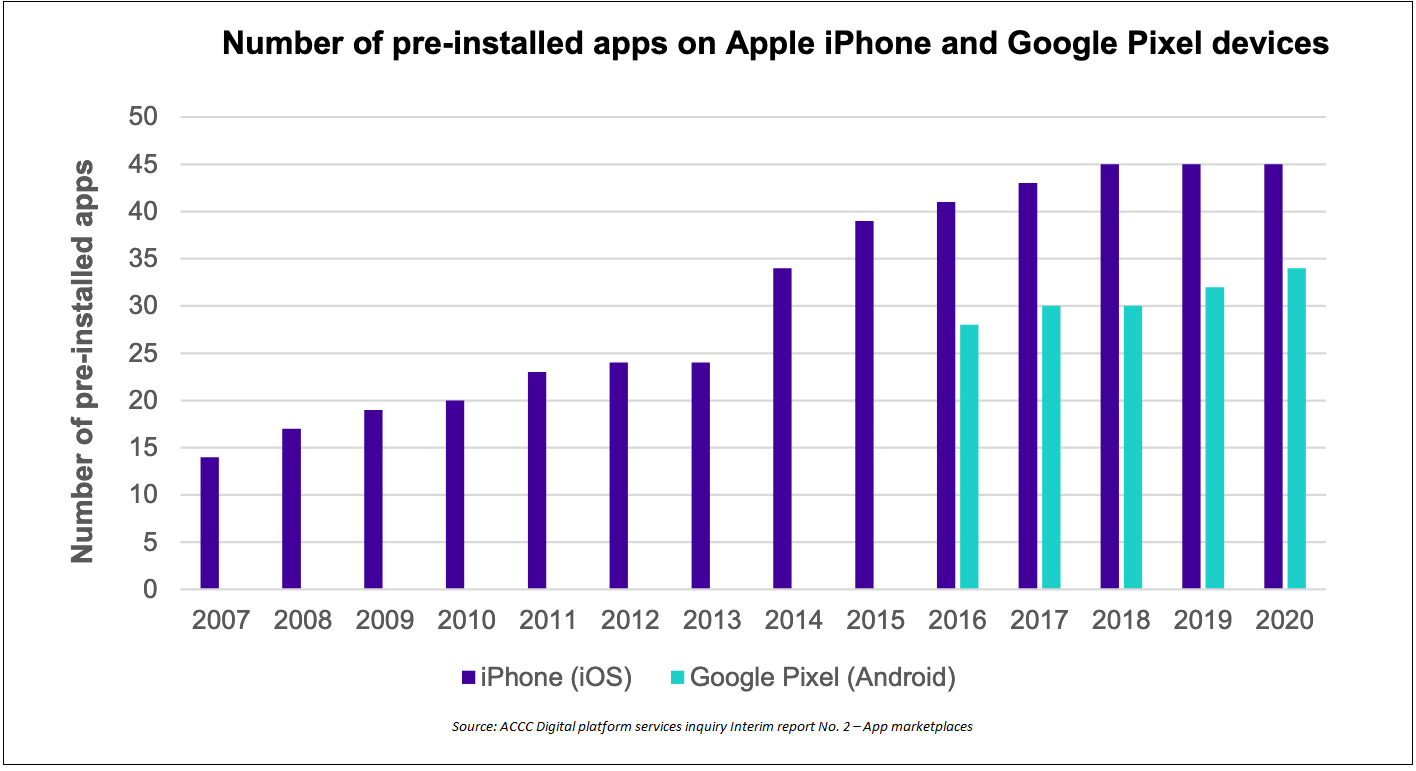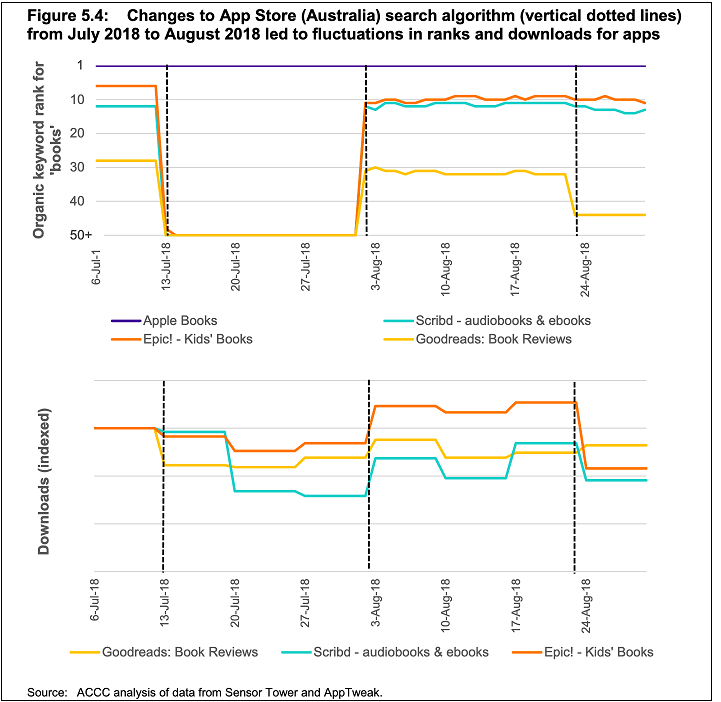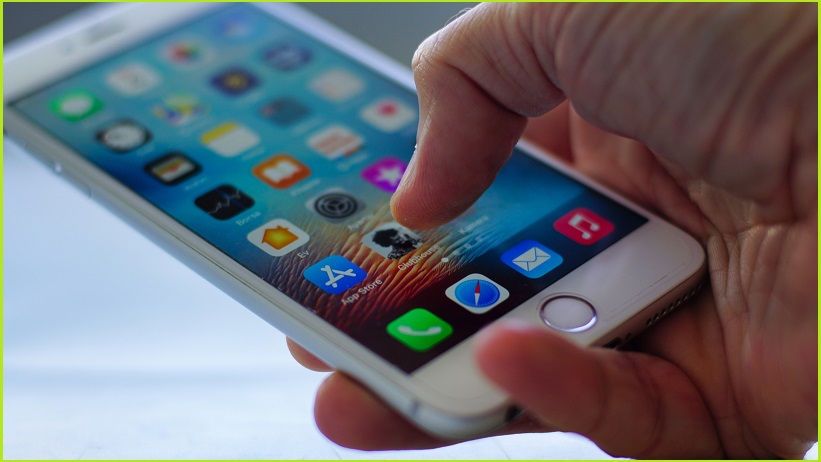The government is going to war on bloatware.
You know those apps on your phone that were there when you got it? The ones you can’t delete?
If the Australian Competition and Consumer Commission (ACCC) has its way, those infuriating space-hoggers may find their days are numbered.
The ACCC has rolled its tanks onto the lawns of tech giants Apple and Google.
They are in the consumer watchdog’s sights because of their enormous market share in apps and their control of the conditions under which apps are used, provided and sold.
“The ACCC considers it likely that this market power is significant,” it said in a report issued on Wednesday.
So, if you want to know why Google Play, Google Chrome, Google Search, Gmail, Google Maps, and YouTube are installed on your Android device when you get it, it’s because that’s part of the agreement between the phone manufacturer and Google, which owns the Android operating system.
An app that comes pre-installed is at a significant advantage over other apps.
But that’s not all.
Some agreements offer financial incentives “not to pre-install, or set as a default, alternatives to a limited number of Google’s apps.”
As the next graph shows, pre-installed apps are on the rise.

According to the ACCC, 22 of the 33 pre-installed apps on the Google Pixel phone can’t be deleted, and 12 of the 44 on an iPhone.
Several of those non-deletable apps can’t be compared to the alternatives, as they do not have ratings on the app store.
The ACCC is suspicious this may be because the default apps are not so good: “Data collected by Sensor Tower suggests that many of Apple’s apps had very low ratings at the time their ratings and reviews were removed from the App Store in 2012. For example, Apple Books had a 2.7-star rating, while Apple Podcasts had a rating of 1.7 stars.”
Discover me
The question of bloatware is just one aspect of the big question in app markets: whose apps get found and installed.
There are millions of apps on both stores.
Most languish in perpetual money-losing obscurity. A few rise up. But which?
Apple and Google control the markets, the fees (up to a 30% commission on in-app purchases!) and the algorithms that determine search.
These mercurial algorithms keep app makers awake at night.
As the next graph indicates, an algorithm change can boot an app down the rankings, and crater downloads.

App makers are desperate to know if the algorithm is going to change.
Search ranking is a “live or die” situation for many apps, according to a submission from the Australian Business Software Industry Association.
The ACCC is following precedent in Europe by cracking down on competition in markets for apps.
Multi-billion euro fines have been handed out in Europe and a concept called Choice Screens is being rolled out.
These give consumers an option to avoid default apps.
Will Apple and Google offer Choice Screens here?
The ACCC is still weighing up whether these are necessary, but it’s giving the two big players a hint it wouldn’t mind if they brought them in voluntarily (among other changes).
“This report identifies, as potential measures, those steps that could be undertaken by Apple and Google; however, regulation may be required if they fail to do so,” said Wednesday’s report.
Is voluntary compliance likely?
Apple may have shown its hand already, sending in a strongly worded submission to the ACCC in February this year.
“Apple does not … consider that it has a substantial degree of power in any market relevant to the issues that are the subject of the Commission's current inquiry,” it said.
In response to an enquiry by Information Age, a spokesperson simply said Apple's "unwavering commitment to bringing our customers the best experience is applied equally and evenly to all, including Apple’s own apps."
The battle over bloatware has just begun...
Google was also contacted for this story but had not responded by deadline.










